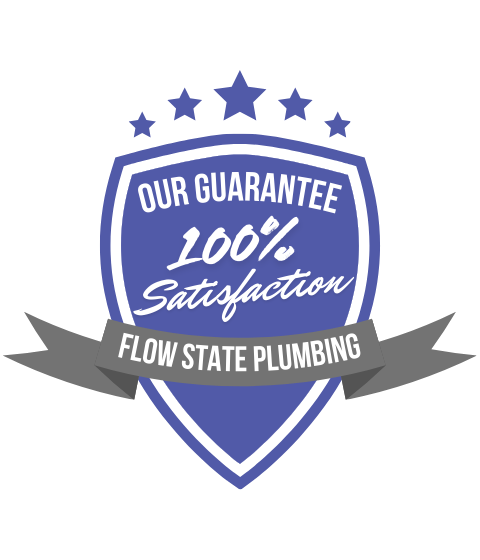Traditional vs. Tankless Water Heaters: Which is Right for Your Southern Oregon Home?
Making the Right Choice for Southern Oregon's Unique Climate
When your water heater reaches the end of its life in Southern Oregon, you're faced with an important decision: stick with a traditional tank system or upgrade to a tankless unit? As a family-owned plumbing company serving Ashland, Talent, Phoenix, and Medford, we've helped many homeowners navigate this choice.
The answer isn't the same for every home. Southern Oregon's climate, local utility costs, and the diverse housing stock—from historic Ashland cottages to newer Medford developments—all factor into what makes the most sense for your specific situation.
Traditional Tank Water Heaters: The Reliable Workhorse
Traditional tank water heaters remain the most common choice in Southern Oregon homes, and for good reason. These systems store 30-80 gallons of hot water in an insulated tank, keeping it ready for immediate use.
Advantages of Traditional Tank Systems
Lower Upfront Costs: Tank water heaters typically cost $800-$2,000 for the unit, plus installation. This makes them budget-friendly for many Southern Oregon families.
Simple, Proven Technology: With fewer electronic components, tank systems are generally more straightforward to repair and maintain. This reliability is especially valuable for older homes in Ashland and Talent where accessing modern gas lines or electrical upgrades might be challenging.
Multiple Simultaneous Uses: A properly sized tank can handle multiple hot water demands at once—showers, dishwashers, and washing machines—without immediate temperature drops.
Familiar to All Technicians: Every plumber in Southern Oregon knows how to service traditional tanks, making emergency repairs more accessible.
Disadvantages to Consider
Higher Operating Costs: Tank systems continuously heat water 24/7, even when you're not using it. With Southern Oregon's colder winters, this "standby heat loss" can significantly impact utility bills.
Limited Hot Water Supply: Once you've used the stored hot water, you wait 20-60 minutes for the tank to reheat. Large families or homes with multiple bathrooms often experience this limitation.
Shorter Lifespan: Traditional tanks typically last 8-12 years in Southern Oregon, where mineral-rich water can accelerate corrosion and sediment buildup.
Space Requirements: Tanks need significant floor space and clearance, which can be challenging in smaller Talent or Phoenix homes.
Tankless Water Heaters: On-Demand Efficiency
Tankless systems heat water instantly as it flows through the unit, providing hot water only when needed. They're becoming increasingly popular in Southern Oregon's energy-conscious communities.
Advantages of Tankless Systems
Unlimited Hot Water: Properly sized tankless units provide continuous hot water flow, perfect for large families or homes with multiple bathrooms—common in Medford's newer developments.
Energy Efficiency: By heating water only on demand, tankless systems can reduce energy costs by 20-30%. With Southern Oregon's cold winters requiring more heating, these savings add up significantly.
Longer Lifespan: Tankless units typically last 15-20 years, nearly double the life of traditional tanks. This longevity is particularly valuable for investment properties or homes you plan to keep long-term.
Space Savings: Wall-mounted tankless units free up valuable floor space, ideal for smaller homes or when converting basements into living areas.
Cleaner Water: Without a storage tank, there's no risk of sediment buildup or bacterial growth that can affect water quality.
Disadvantages to Consider
Higher Initial Investment: Tankless units cost $1,500-$4,000 plus installation, which can be substantial if electrical or gas line upgrades are needed in older Southern Oregon homes.
Flow Rate Limitations: Even high-capacity units can struggle with simultaneous high-demand usage. Running a shower, dishwasher, and washing machine simultaneously might result in temperature fluctuations.
Cold Weather Performance: During Southern Oregon's winter months, incoming water temperatures can drop significantly, reducing the unit's effective capacity and requiring larger units than you might expect.
Complex Installation: Tankless systems often require electrical upgrades, gas line modifications, or venting changes—especially challenging in historic Ashland homes with limited utility access.
Southern Oregon Climate Considerations
Our region's climate creates unique factors that influence water heater performance and efficiency.
Winter Temperature Impact
Southern Oregon winters can push incoming water temperatures down to 40-50°F, significantly lower than summer temperatures. This affects both system types:
Traditional Tanks: Work harder to maintain temperature during cold months, increasing operating costs but maintaining consistent output.
Tankless Units: Must work significantly harder to achieve the same temperature rise, potentially requiring larger units than calculators suggest for warmer climates.
Which System Fits Your Southern Oregon Home?
Traditional Tank Systems Work Best For:
- Budget-Conscious Installations: When upfront costs are the primary concern
- Older Homes: Historic properties in Ashland where utility upgrades would be extensive
- High Simultaneous Demand: Large families with multiple bathrooms and appliances running simultaneously
- Simple Replacement Needs: When existing gas and electrical connections are adequate
- Rental Properties: Where landlords prioritize lower initial investment and simple maintenance
Tankless Systems Work Best For:
- Long-Term Homeowners: Who can recoup the higher initial investment through energy savings
- Space-Constrained Homes: Smaller properties where floor space is valuable
- Energy-Conscious Households: Families prioritizing environmental impact and utility savings
- New Construction or Major Remodels: Where utility upgrades are already planned
- Consistent Usage Patterns: Homes without extreme peak demand periods
Making Your Decision: Key Questions
Before choosing between traditional and tankless, consider these questions specific to Southern Oregon living:
- How long do you plan to stay? Tankless systems require 5-8 years to recoup initial investment through savings.
- What's your home's utility infrastructure? Older homes may need significant upgrades for tankless installation.
- What's your usage pattern? Large families with simultaneous hot water needs might prefer traditional tanks.
- How important is space? Smaller homes benefit significantly from tankless space savings.
- What's your budget? Consider both upfront costs and long-term operating expenses.
Professional Installation Matters
Regardless of which system you choose, proper installation is crucial for performance, efficiency, and longevity. Both traditional and tankless systems require:
- Proper sizing calculations based on your specific usage patterns
- Code-compliant installation meeting Southern Oregon requirements
- Appropriate venting and safety considerations
- Quality components that withstand our climate conditions
The Bottom Line for Southern Oregon Homeowners
There's no universal "best" choice between traditional and tankless water heaters. The right decision depends on your specific home, family needs, budget, and long-term plans.
Traditional tank systems continue to provide reliable, cost-effective hot water for many Southern Oregon families, especially in older homes or where budget is the primary concern.
Tankless systems offer compelling benefits for homeowners who can accommodate the higher initial investment and have appropriate utility infrastructure—providing unlimited hot water and significant energy savings over their longer lifespan.
Need Help Deciding?
Every home situation is unique, and the decision between traditional and tankless water heaters involves factors specific to your property, usage patterns, and budget. As your local Southern Oregon plumbing experts, we're here to help you make the right choice.
We offer free consultations where we'll evaluate your current system, assess your home's infrastructure, discuss your family's hot water needs, and provide honest recommendations based on what truly makes sense for your situation—not just the most expensive option.
Ready to explore your options? Call Flow State Plumbing at (541) 631-4842 for a free consultation. We'll help you navigate the decision with honest advice, transparent pricing, and the quality installation that keeps your hot water flowing reliably for years to come.




